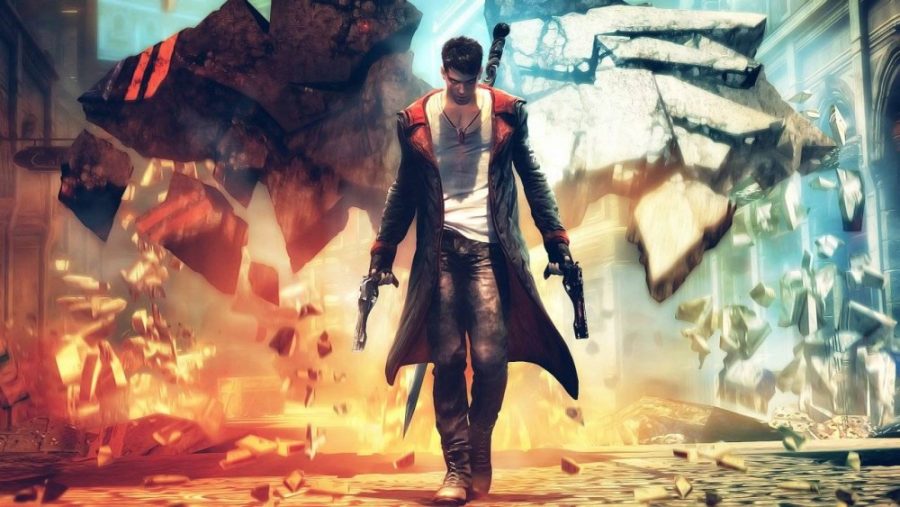“DmC: Devil May Cry,” Ninja Theory’s and Capcom’s recent reboot of their Devil May Cry series, had a lot of expectations to meet after drastically changing the look and feel of protagonist Dante and the world he lives in. The game met pretty much every one.
Above all else, it was mostly nice to see the reboot work out well. After the game was first announced and an updated character design of Dante showed his signature white hair and thick build were replaced with more realistic looks, Capcom and Ninja Theory received nothing but the ire of fans. People raged about the changes for any reason they could imagine, but all their arguments evaporated once the game was released. “DmC” was a good game despite all the changes.
Now I never played the original, so I can’t say whether or not “DmC” did right by the series, but the consensus from everyone else seems to indicate it did. The game received scores in the high 80s from aggregate sites like Metacritic and GameRankings.
As for my take on the game, it was a solid title worth your time — assuming you’re a fan of combo-heavy action/adventure games.
“DmC” doesn’t do a whole lot, gameplay wise, but what it does do, it does well. The fighting is hands down the best aspect of the game, which is good since there’s so much of it. Throughout the game Dante acquires new weapons which are usually either angelic or demonic, but each has a relatively different feel for it.
Being able to switch between the eight weapons smoothly (by holding the left and right triggers and cycling through options on the d-pad) makes combat flow flawlessly, with some practice. Upgrades are handed out generously, and in a wonderful change of pace when compared to other games in the same genre, no upgrade is permanent.
A player is free to, at almost any time, shift around upgrade points and trade certain abilities for others. Granted, there are so many given out that that this is hardly ever necessary, but the consideration is much appreciated.
Visually, the fighting is beautiful and badass at the same time, and the ranking system for combos provides an incentive to mix up attacks, keeping gameplay from getting stale.
The basic enemies, at least on the default setting, are rarely tough, but that’s not necessarily a problem. On the other hand, dealing damage to some requires specific weapons, and that can get a bit formulaic, but never to the point of excess. Besides, by the last few mission the game throws a couple of really nasty enemies at you that bump the challenge level back up a bit.
Bosses were relatively satisfying to go up against at the beginning of every fight, but the challenge is sucked right out once the player picks up on the secret to winning. Each boss has its own strategy and they’re never hidden that well. As a result, they can drag on occasionally, but there aren’t so many as to ruin the game.
Capcom does provide a relief from the simplicity, once players beat the game a few times. There are some modes in which Dante dies if he gets hit once, which will surely provide an absurd challenge for anyone ballsy enough.
The platforming, which is the rest of the game, is never that complex, but the presentation is so awesome that it doesn’t matter. Almost all of the game takes place in the parallel dimension of Limbo, and the demons Dante faces can warp the landscape at will. This leads to a constantly shifting world that feels dynamic even when it’s really not. The changes are scripted, but happen at such precise times that they often seem like a surprise.
More surprising than anything else, though, is the story. While the plot is nothing special — Dante fighting a demon king who killed his mother and imprisoned his father alongside his brother and a love interest — the characters are more well done than many in most games.
There’s a lot of swearing to the dialogue, but it really pops and feels modernly honest. Everyone’s delivery is spot on, too, and the development (or lack thereof) is apparent and satisfying in every case.
Conclusion: 8.5/10
Savor this game while you can, and then join me in waiting for the already-alluded-to sequel.









